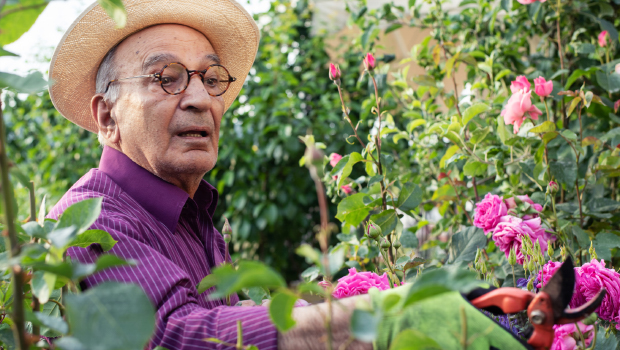
Resilient seniors claim significant lifestyle benefits that include:
- better physical health with fewer chronic illness conditions,
- reduced incidence of hopelessness and depression,
- enhanced independence in daily living activities,
- stronger adaptive coping styles and capacity to recover from stressful events,
- lower risk of mortality, even among the very old; respondents aged 94-98 years with high resilience were 43.1% more likely to reach 100 years than those with low resilience
What is resilience? Most people cite “the ability to bounce back from a setback or reversal.” Is resilience just reactive? No. Resilience has a foundation in our beliefs and expectations. Specific planning and anticipatory skills are central to resilience. We discuss concrete examples below.
Is resilience hard-wired or learned? There are people who seem to be naturally resilient but there is no question that anyone can learn skills that enhance their personal resilience and, by doing so, capture significant benefits that will enhance their quality of life.
We can gain critically important insights from other cultures.
The Finnish culture holds SISU as a treasured value for every member of their society. The Finns often say that sisu is not translatable but people who make the attempt talk about extraordinary determination in the face of great adversity. “To the Finnish people, sisu has a mystical, almost magical meaning. Sisu is a unique Finnish concept, … that can be roughly translated into English as strength of will, determination, perseverance, and acting rationally in the face of adversity.”
Finns are consistently regarded as the best educated people on the planet. Sisu may well have something to do with their academic achievement success.
Resilient people are not invincible. They get knocked on their ‘derriere’ just like everyone else. They just don’t stay down for very long. Setbacks hurt emotionally – just like they do for everyone. Resilient individuals know that dwelling on a mistake or failure does not add much value beyond taking time to reflect on what went wrong and refine their strategy accordingly.
Resilient people are optimists – not ‘pie in the sky’ idealists – but resilient people believe that most problems can be resolved with the right resources and a fervent determination to forge a solution.
Everyone can learn skills that will strengthen their personal resilience despite where you start from. Here’s an example: the next time you set goals regarding an exercise activity or a learning challenge, spend some time anticipating potential obstacles that you may encounter. If you commit to walking or exercising four times a week for a half hour, be prepared that one or more of those scheduled outings will get knocked off your calendar for whatever reason. Expect it. Define a contingency plan.
For interested readers who want to boost their RQ – ‘resilience quotient’ – by visiting Resilience-Advocate.com. Vermont Maturity readers still have an invitation to complete our 10-item survey on resilience. Look for the ‘test drive’ link on the home page. Respondents get an eight page, personalized ‘Resilience report’ based on their individual answers.
Richard Houston holds a Doctorate in Education and was licensed by the Massachusetts Board of Psychology. He is a graduate of Brown University. He has conducted research on the psychological dimensions of healthy lifestyle behaviors and has had long term consulting relationships with several continuing care retirement communities. You can visit his website at Resilience-Advocate.com.
Related Articles & Free Vermont Maturity Subscription

Five Dietary Tips to Help Your Memory
The Psychology of Healthy Aging
The Self-Fulfilling Prophecy Remains Alive and Well in Older Adults






Comment here